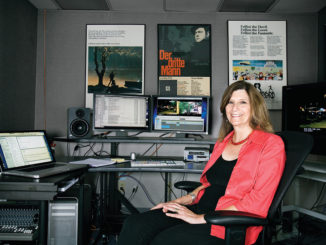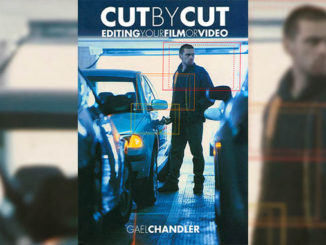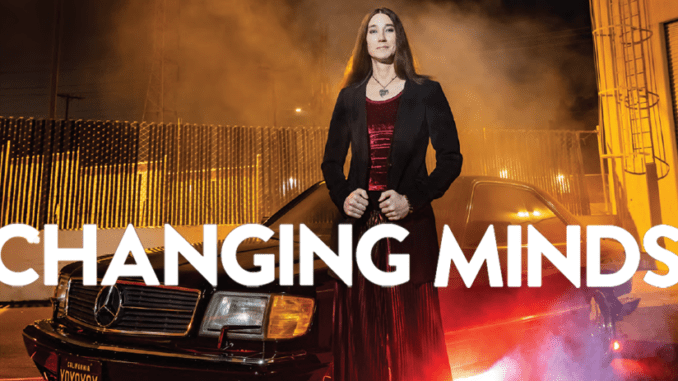
By Stevie Waichulis
During my late 20s, I was just coming out of my shell, discovering who I was.
It always upset me that people felt that I needed to change in their eyes, that I was never good enough in my own skin or attire. My true identity was constantly challenged through the early years of my career. Many coworkers told me that I would go much further in my career if I just played the “straight game” regarding my appearance.
I always worked very hard and doubled the hours that most Editors would not consider doing for low-budget, independent projects. Being single and in my late 20s, I did not have a family waiting at home. I went above and beyond for producers and directors who, I realize now, did not appreciate my diligence, nor did they respect me for who I am. When people start out in this industry, they oftentimes try to overachieve to prove their worth.
This interaction with producers and directors continued for many years. I have pretty thick skin and I try not to allow people’s personal opinions of my appearance affect me. However, when it affects my position or future opportunities, then that’s a problem. I had one producer tell me that I should wear “business attire” and not feminine attire. They meant, male business attire. I said, “Well, if that’s what I was going for, I would do that. But that’s not who I am, nor is it my style.” This has been the story of my life: People constantly offering their opinion of who I should be in their eyes.
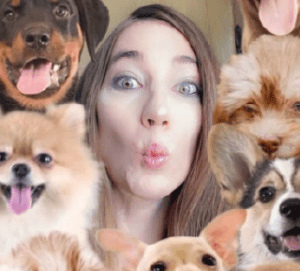
I grew up in a small town in rural Pennsylvania, which had its pros and cons. I lived in a safe and slower-paced environment. However, there was a lack of diversity compared with larger metro areas. Having the opportunity to work on farms and experience a rural upbringing gave me a unique outlook.
My teenage years consisted of dirt bikes, beer, guns, fishing, camping, and 3-day music festivals, as well as the occasional fist fight that resulted in loose teeth and blood in my mouth. I’ve always been an automotive enthusiast and was fortunate enough to own motorcycles growing up. I still have an old 1981 Kawasaki KZ750-E2 from my college years which I’ve been restoring on and off through the years. Go to my (Stevie Waichulis) YouTube channel to view a few clips of this motorcycle. I get joy out of tinkering with mechanical things and getting my hands dirty in the process.
My initial college major was Computer Science but I changed over to Fine Art and Graphic Design. I then ventured into Radio & Television Production, followed by earning a BS in Film and Animation at Rochester Institute of Technology in Rochester, NY.
In August of 2004, I rented a U-Haul and loaded my old Buick and belongings and relocated to LA. The trek across
the country and hopes of a bright future were exhilarating.
At the time, I was primarily dating men and was beginning to become more gender-fluid with my wardrobe. Rochester, NY, was my first experience in a larger, more diverse city. Moving to LA was like another planet all together compared to the East Coast.
When I arrived in LA, I lived with a friend from RIT in a small studio apartment in Highland Park. It was a sketchy neighborhood, with gunshots heard every other night. I grew up with guns in Pennsylvania and never had a problem with them. However, when people shoot them off in populated cities, it’s a bit uncomfortable thinking that a stray bullet can come through the apartment windows at any time. Helicopters with spotlights flew around our neighborhood most nights which made it next to impossible to sleep. One of our neighbors owned a pickup truck with several bullet holes covered up with electrical tape. We had a few gang members in our apartment building. Needless to say, rent was affordable in Highland Park during that time. It is also very likely that none of the landlords cared much about what kind of tenants lived there, and whether or not they followed the regulations (read more about that here – https://www.american-apartment-owners-association.org/landlord-tenant-laws/) that come with renting out a space. It goes without saying, that the people in this neighborhood were less than ‘reputable’.
I thought it would be too difficult to achieve success in the entertainment industry if I transitioned.
Meanwhile, I worked various retail computer jobs as well as low-budget independent films. I started obtaining more and more Assistant Editor and Editor gigs and in 2008 I got to cut my first documentary film.
Through the years, people constantly told me to dress more professionally, which meant more like a straight male. My style of dress was gender-fluid, and I was not willing to change to make other people more comfortable around me. I personally started and stopped my own transition several times over the years because I thought it would be too difficult to achieve success in the entertainment industry if I transitioned.
People’s fears and misunderstandings of gender identity kept me from being my true self in this industry. It was always hurtful when people would talk to me about my choice of attire and that I needed to change to be taken more seriously in the entertainment industry. I never asked for people’s opinions. Each new film or show I worked on typically had a few people that just didn’t respect or trust me because I was trans and/or non-binary.
Through the years, workflow problems and situations came up in post-production from time to time. If there was tension amongst editors or producers over technical issues regarding a scene or shot, the crosshairs would typically land on me when I was assisting, placing blinded blame for random technical issues with footage or sound, which in the majority of instances had nothing to do with me directly.
Many productions are grossly mismanaged from top to bottom. Editors and assistant editors know that problems on set get passed on to post production. It is part of the job.
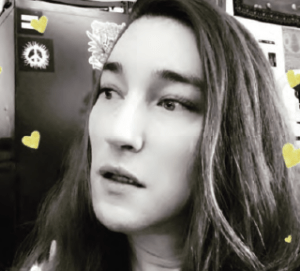
A few years, ago I was editing on a show when a new post-production supervisor came on board. I was midway through the producer notes phase of my episodes. Word got back to me that the post-production supervisor was uncomfortable with me and would talk behind my back. Their homophobic and transphobic chatter would take place after I left at the end of the work day.
We can’t always pick who we end up working with in post production. I typically take most gigs that come my way because living in Los Angeles is far from affordable and I need every job I can get.
Over the last several years we are finally seeing more transgender representation in the content being produced. Every time a transgender actor or actress is cast, it helps spread awareness and acceptance around the world. The same goes for post-production as well.
I hope my story and experiences can help others stand up and become stronger and have the courage to be themselves without fear or anxiety. We should not feel that we have to look down or away when people look at us. I have done this over the years as I would hear people commenting under their breath. I did not want to socially engage any more than I needed to outside of what was expected of me on the job. I did not want to make any waves that would jeopardize any future opportunities.
The transgender community deserves the same respect that anyone else in this industry receives. As long as we believe in ourselves and we stay true to ourselves, success will follow.
Other people’s fear and misunderstanding will begin to fade away as we all do our part in being VISIBLE. Transgender union members should not be treated any differently than any other union member.
It’s important that we allow people to see us for who we are. We are not going away, that’s for sure. We have stories to tell. Let our creativity flow!
I look forward to all the amazing stories yet to be told by our community through film and television and to working with more LGBTQ+ content makers in 2021.
Stevie Waichulis is a Film Editor. In 2020, she and her film partner Jason Rutherford distributed their film “SHHHH” (darksidereleasing.com), which was an official selection at Beyond Fest. In 2021, they are releasing a definitive documentary on Grindhouse cinema called “Masters of the Grind.”


